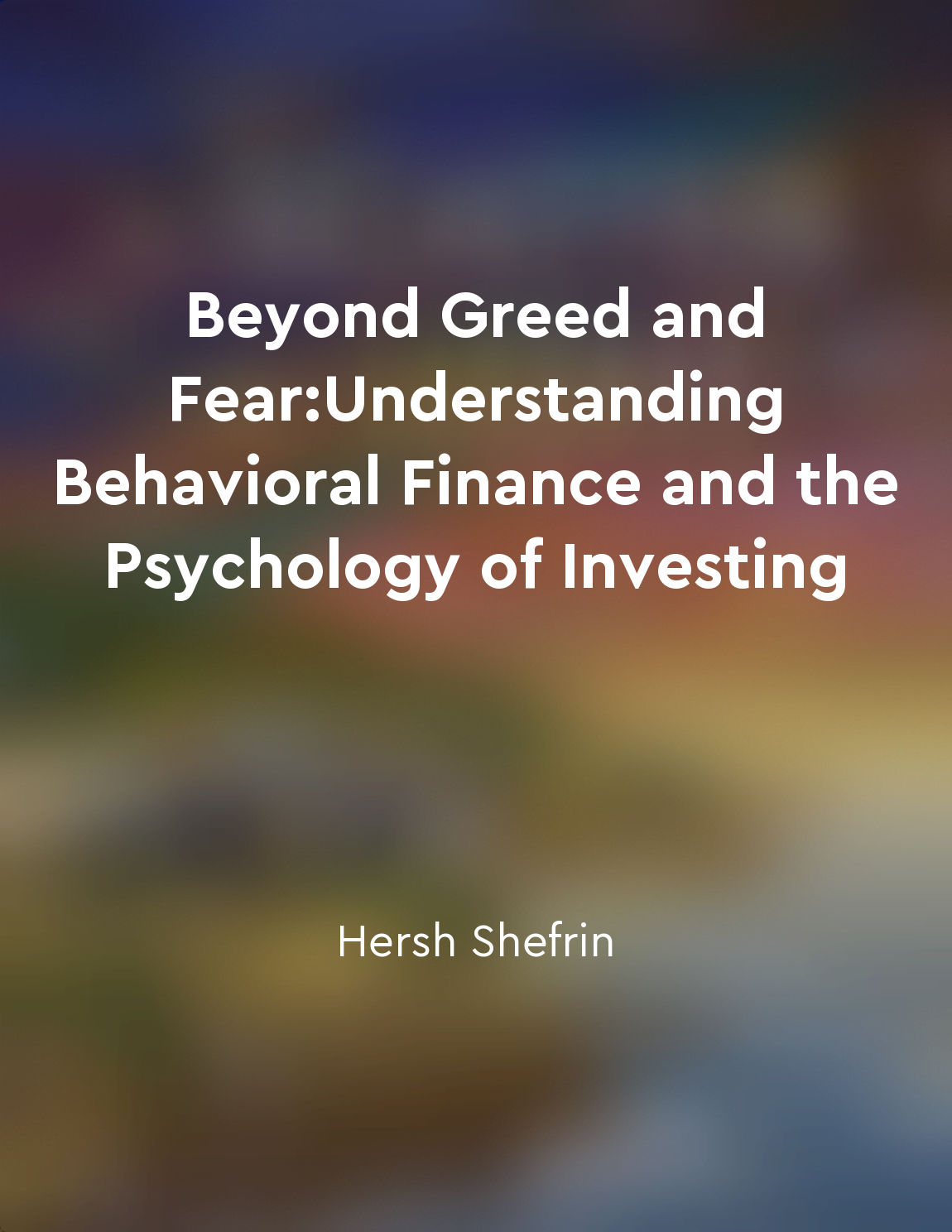Loss aversion makes investors hold on to losing investments for too long from "summary" of The Little Book of Behavioral Investing by James Montier
Loss aversion is a powerful force that can lead investors down a dangerous path. When faced with the prospect of selling a losing investment, many investors experience a strong emotional pull to hold on in the hopes that the investment will eventually turn around. This tendency to avoid realizing a loss is a common cognitive bias that can have detrimental effects on investment performance. The fear of regret plays a significant role in this phenomenon. Investors are often haunted by the thought that if they sell a losing investment, it will quickly rebound, causing them to miss out on potential gains. This fear of making the wrong decision can paralyze investors and prevent them from taking appropriate action to mitigate losses. Additionally, investors tend to place more weight on losses than gains of the same magnitude. This asymmetry in the way losses and gains are perceived can lead investors to irrationally hold on to losing investments for longer than they should. The pain of losing money is often more intense than the pleasure of making money, causing investors to act in ways that are not in their best financial interests. Overcoming loss aversion requires discipline and a willingness to face the reality of a losing investment. By setting clear investment goals and establishing a predetermined exit strategy, investors can avoid falling victim to the emotional traps that can derail their financial success. It is important to remember that losses are a natural part of investing, and holding on to a losing investment in the hopes of recouping losses is not a viable long-term strategy.Similar Posts
Seek out mentors who can guide you on your financial journey
As you embark on your financial journey, it is crucial to seek out mentors who have the experience and wisdom to guide you alon...
Evaluate management's ability to allocate capital efficiently
To assess management's ability to allocate capital efficiently, investors need to look at how well a company deploys its resour...

Availability bias leads to distorted decisionmaking
Availability bias is a cognitive shortcut that occurs when people make decisions based on information that is readily available...
Emotions play a significant role in investing
Investing is not just about numbers and data; it is also about emotions. Emotions are deeply intertwined with the decisions we ...
Evolutionary principles can be applied to investment strategies
The concept of applying evolutionary principles to investment strategies is based on the idea that successful investing, like e...
Humans are wired to seek rewards
The brain is hardwired to pursue rewards of all kinds. It is constantly seeking out pleasure and avoiding pain. This primal urg...
Stay informed about the performance of your investments
To succeed as an investor, you must be vigilant in monitoring the performance of your investments. This means regularly checkin...
Loss aversion makes us fear losses more than we value gains
Loss aversion is a powerful human bias that affects our decision-making process more than we may realize. It is the tendency fo...
Building wealth is a journey, not a sprint
Building wealth is a journey that requires patience, discipline, and a long-term perspective. It is not something that can be a...
We tend to rely on heuristics instead of careful analysis
In our daily lives, we often find ourselves making quick decisions based on simple rules of thumb rather than carefully analyzi...
